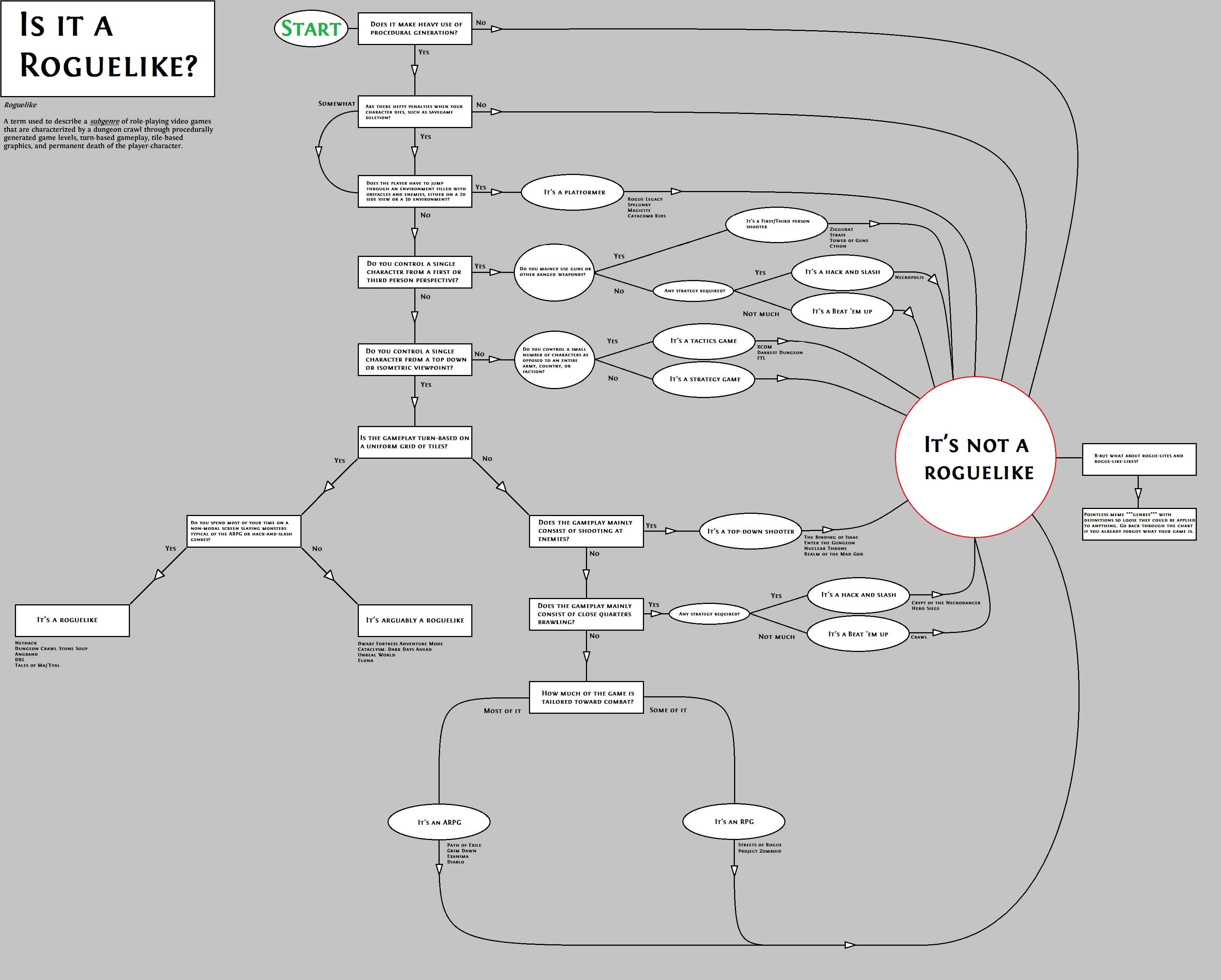Your Game Is Not a Roguelike
I have an issue with the roguelike (and to an extent roguelike-like and roguelite) genre. More specifically, I have an issue with the name of the genre.
The problem with roguelike
There’s this age old, ever discussed topic: What is and what isn’t a roguelike? Of course, there’s the (in)famous Berlin Interpretation which basically says that above all, a roguelike game is a game
- where the world is randomly generated to increase replayability (their definition actually disallows “fixed” content such as puzzles, or plots/stories)
- where death of a character is permanent and is punished by deleting the save file
- a game that is turn-based and not sensitive to time at all; where the world is represented by a uniform grid of tiles (and everything takes up only one tile)
- a game that is non-modal, so all actions like movement in the world, battling, shopping, etc. takes place in the same mode (no overworld, no dedicated battle screens, and so on)
- a game that is complex enough to allow several solutions to the same goal; where your resources like food, potions, etc. are limited
- where killing monsters is a very important part of the game with no monster/monster relations
- and finally a game that offers exploration and discovery, be it through randomly generated levels, or unidentified items.
With less “required” features like having a single player character, monsters being similar to players, providing a tactical challenge, being rendered in ASCII, containing dungeons and deliberately showing numbers.
Recently, I have stumbled upon a tweet with a flowchart (also displayed below) that actually prompted me to make this post and that seems even more restrictive than the Berlin Interpretation.
 Click the image to open it full-size in a new tab
Click the image to open it full-size in a new tab
The chart overlaps a lot with the Berlin Interpretation, except it also says that a roguelike is strictly top-down or isometric (no first or third person camera) and lists a bunch of genres that you should define your game with rather than roguelike if it breaks one of the “rules” along with some examples.
And there lies the problem, those definitions are way too restrictive and the result of following those “rules” is pretty much just cloning and reskinning the original Rogue with little room for innovation.
A solution?
I don’t think the Berlin Interpretation or the grid is inherently bad. Sure some of the rules should just go away completely, like forcing the camera view or the ASCII output. I also think there should be less emphasis put on certain “rules”, like disallowing a plot, or puzzles, non-modality, or even the aspect of killing monsters.
The core values, to me at least, are Replayability, Complexity, Exploration and Discovery.
In the end, I think the problem is actually rather simple and it’s in the name - Roguelike - a game “like Rogue”. I think we should move past this, we are not calling First Person Shooters Doom Clones anymore so perhaps we should move on from roguelike and invent a new word for the genre.
What should that word be? I don’t actually know, I am bad with names. The best I come up with is Dungeon Crawler, perhaps someone has a better idea?
Let me know what you think on Twitter, maybe you even have a better name for the genre :)